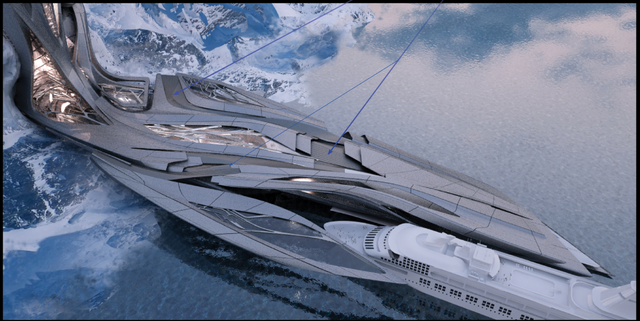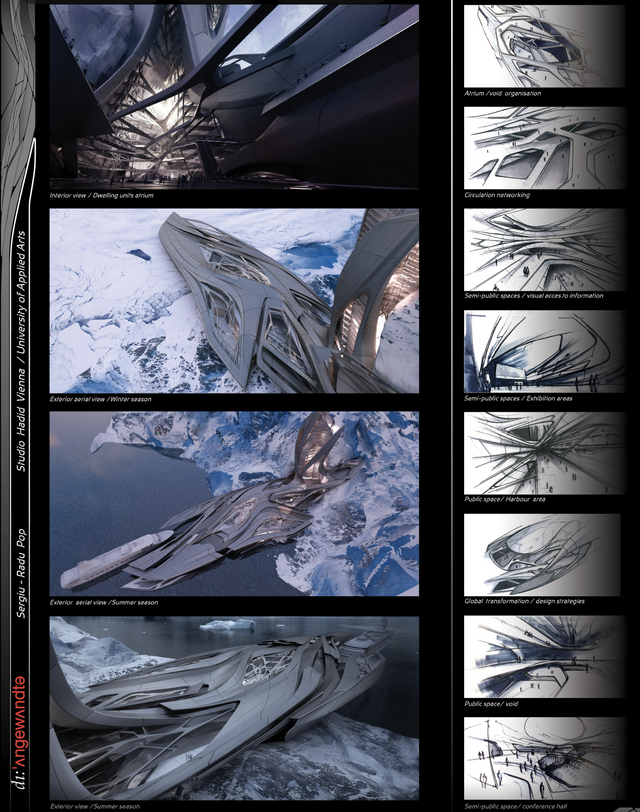A Real-Life Inspiration for Seven Winds and Pine Island
"Everything was as I suspected: the desmodus was equipped with a tracker, and it had flown from Seven Winds, a luxurious resort with few permanent dwellers." (Veliard Reed, The Orphaned Earth)
"As far as I remembered, Nautilus even used to keep a lab there, however, I had never visited it. I only knew it was its oldest facility for brain research and existed before Njord started functioning." (Veliard Reed, The Orphaned Earth)
"Opting for the Seven Winds city in Antarctica, I embarked on the journey, assuming the role of chief engineer aboard the Pine Island—a nuclear passenger liner bound for the southernmost reaches of Earth. As I prepared to disembark, the familiar procedures almost mirrored those aboard the Fermion 2." (Winston Winter, No Life but Immortality

Years ago, while doing my research about Antarctic continent, its scientific facilities and its probable future, I ran into a spectacular work by the young architect Sergiu Radu Pop from Studio Zaha Hadid in Vienna. It was exactly the way I imagined the Seven Winds, the city of luxury, vanity, high-tech and a place for uncanny scientific experiments. The place is mentioned in the opening Geryon code's novel - No Life but Immortality, and plays a central role in the second book - The Orphaned Earth. In the post-apocalyptic world of this book, Seven Winds is a massive remainder of the Golden Age before the global blackout.
Sergiu Radu Pop is an architect known for his innovative designs inspired by biomimicry and futuristic concepts. His Transformable Antarctic Research Facility integrates research and tourism, addressing the unique challenges of the Antarctic environment with a design that mimics natural ice formations.

The project combines functional spaces like research labs, accommodation, public exhibition areas, and observation decks. Its adaptability allows it to endure the extreme Antarctic conditions, including fluctuating ice and harsh weather. Pop’s work emphasizes creating multi-purpose, sustainable structures that enhance both scientific exploration and public engagement with remote environments.
Pine Island Glacier which gave its name to the ocean liner, is one of the fastest-moving glaciers in Antarctica, contributing significantly to global sea-level rise. In the Orphaned Earth, the climate changed so drastically that it lead to the partial melting of Antarctica's ice sheets, allowing construction and even forest growth on once desert-like continent.